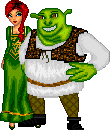“The audience may know what to expect, but are still excited by genre texts.” To what extent is this true?
Introduction:
Genre is dynamic and is the “subject to constant process of change and adaptation” (Richard Maltby) therefore repetition is required for the recognition of the genre which is determine through “semantic elements” and “syntactic elements” the producers of the text chooses to use.
For:
In slasher films they are still excited by the texts because they know what to is going to happen because they are the “knowing audience” but because the slasher films have the feature of suspense keeps them excited and motivated them to want to watch them.
The novelty aspect is what excites the audience, as they want to know the “twist”.
“Popular film storytelling is largely repetition.” Patrick Phillips - therefore repetition is needed for the text to be successful, as the audience needs something they can relate to.
Too much variation makes the audience loose interest
Furthermore, audiences are still excited by genre because to some degree they decide what genre as it changes over time due to what is going on in society as it is reflected in most films for example:
The Vietnam War was reflected in classic slasher films such as
 “Texas Chainsaw Massacre” (1974, Tobe Hooper)
“Texas Chainsaw Massacre” (1974, Tobe Hooper)Moral panics which encouraged the “white flite” was reflected in films like Halloween (1978) the idea of what the white people feared came into their safe surban homes to wreck revenge.
The anxieties teenagers felt about sex was reflected in the film through promoting conservative ideologies and reinforced the “Madonna” role as the females who were virgins survived which promotes the message of “sex equals death.”
Furthermore by promoting these conservative ideologies they are supporting the status quo.
Against:
The slasher genre went into decline after the sequels started to come out and this was no longer exciting for the audience as they became familiarised with the villains and were no longer scared of them. For example “Nightmare on Elm Street” (1984, Wes Craven) franchise made Freddy less threatening and took away the impact he once had on an audience.

“Cultivation theory”- audience are desensitised to the horror so are no longer excited to watch the texts as they will not get pleasures of getting scared as that is the main reason why audience consume certain genre texts as they need their expectations to be fulfilled or they feel cheated.
Variation is needed for a text to be successful too as much repetition will set the genre into decline in Metz genre cycle. Postmodern texts like Scream (1996, Wes Craven) help reinvigorate the genre of slasher film as they explicitly states the conventions of slasher which you would think would make the film less scary and take away the impact but still make the audience excited to consume the text as they have the pleasure of enigma running through the film.
Issues and debates:
Patriarchy is reinforced in a covert way.
Hypodermic needle theory
Genre theory



No comments:
Post a Comment